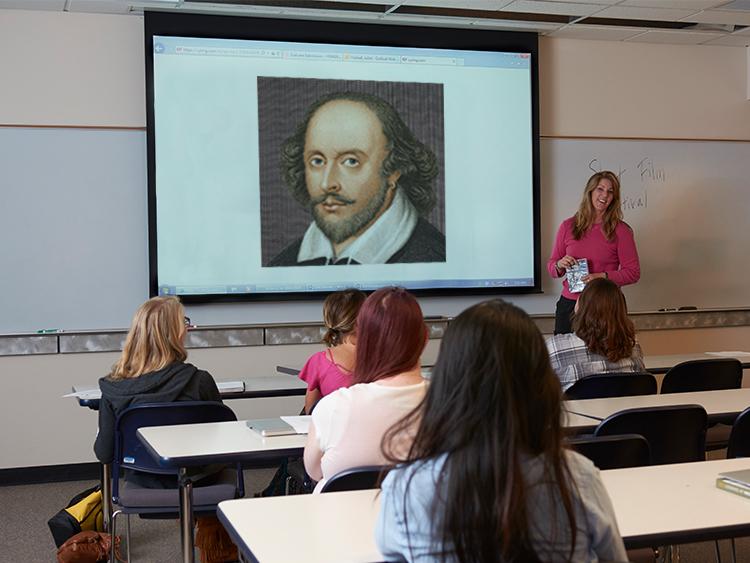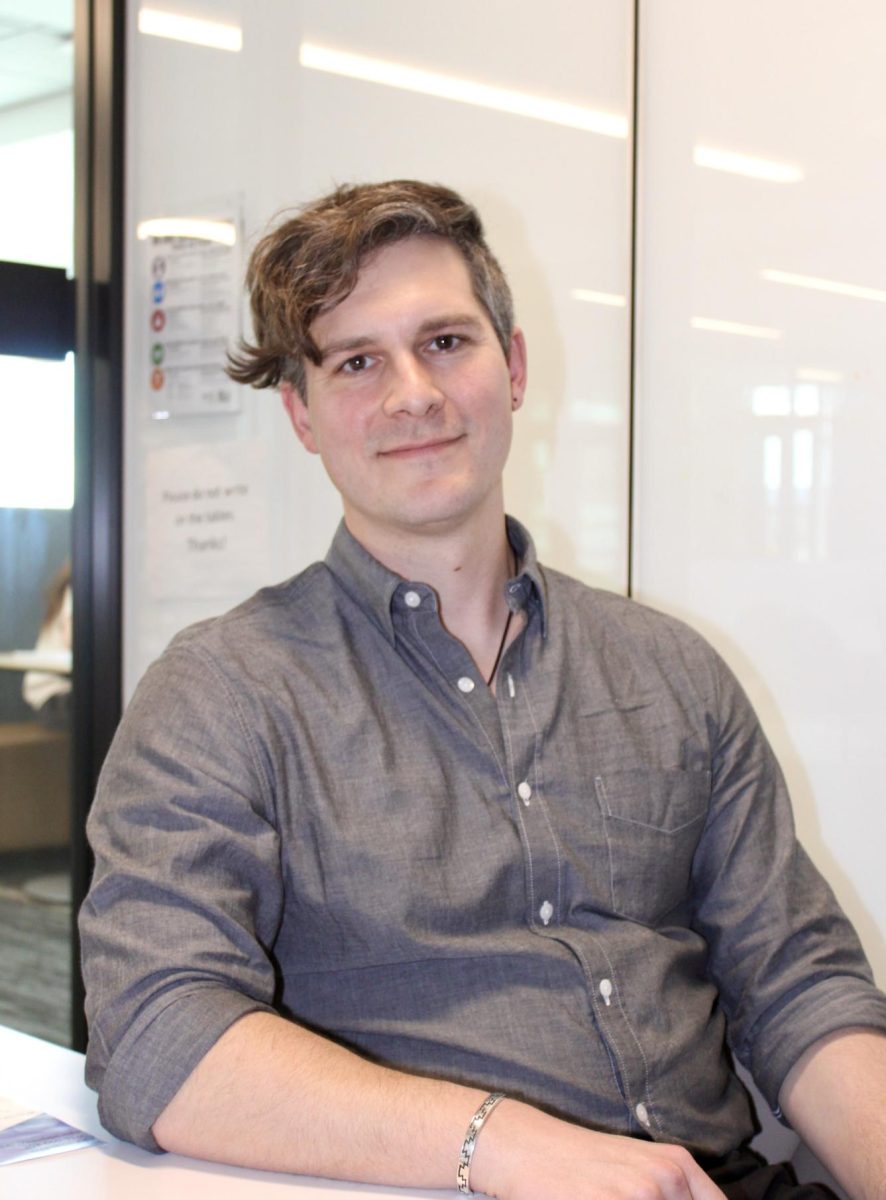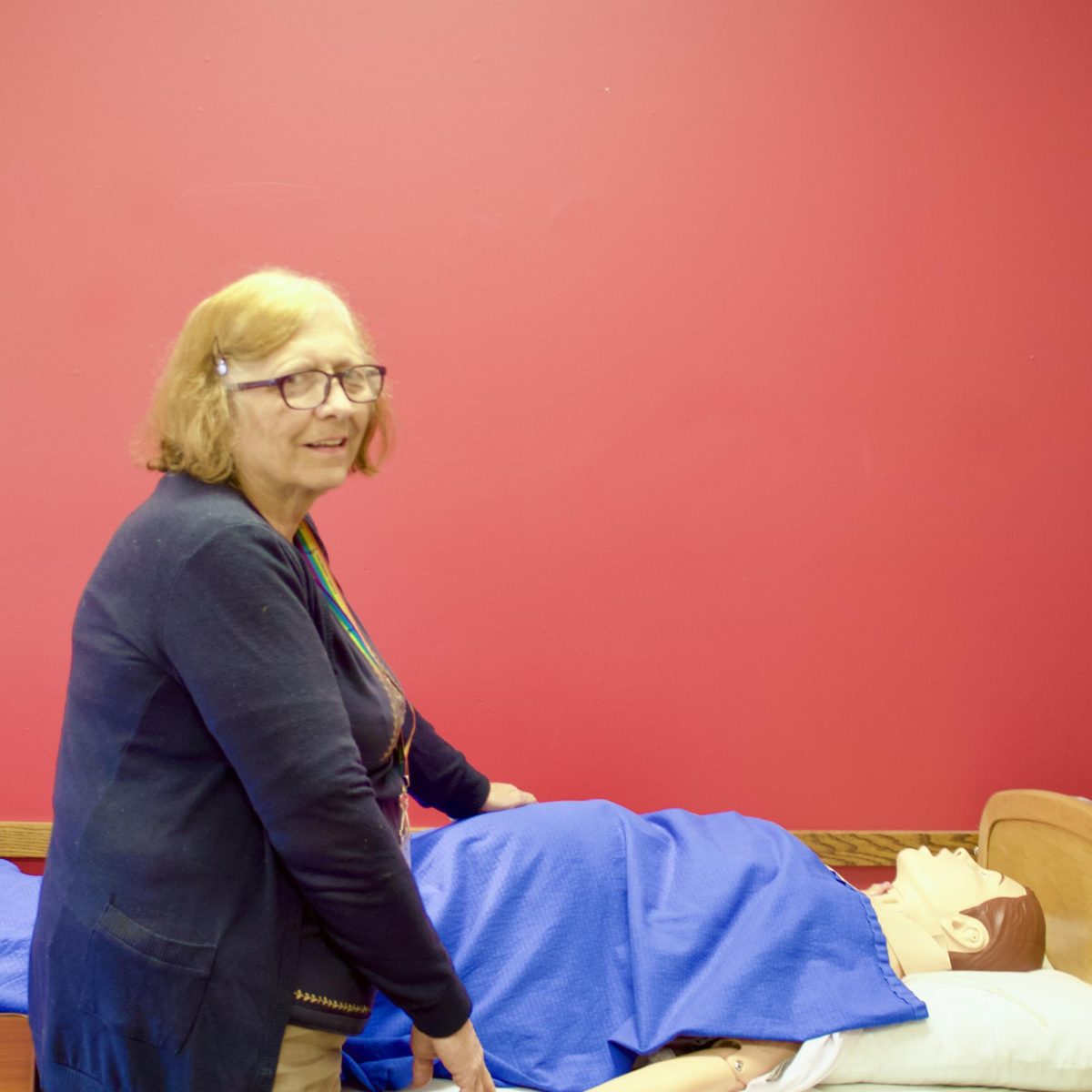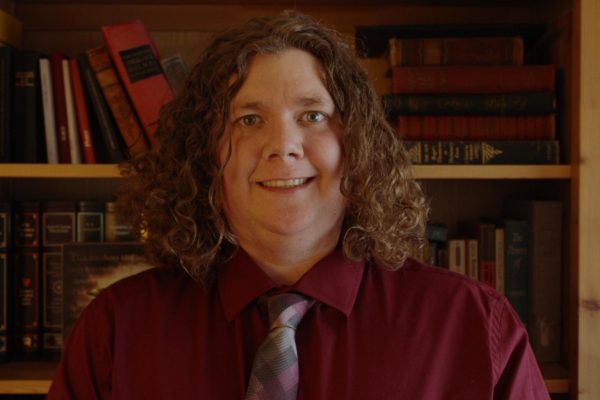Colorado’s Rocky Mountains backdropped Professor Juliet Beckman’s office windows, while trees with hints of yellow and orange dominated the rest of the landscape. She sat with sharp, studious eyes as she examined one of her students’ works, ensuring she gave it full attention. “I admire so many of the students I meet,” said Beckman. “[They] are being asked to do a lot of things that other people are not.”
Beckman has worked across technology, law, and academia. Educated in a wide array of humanities, she has shared her extensive knowledge with her students throughout her 24-year teaching career, offering classes on topics ranging from the Great Books to history and even film studies.
“It was interesting all those years later, after working in the private sector, and after having worked too for my family’s law office, to discover that I really did [excel at] and should have stuck with academia,” said Beckman as she reflected on her career path.
Despite a long career as a teacher, Beckman’s drive for learning hasn’t faltered. At the time of this writing, she is working on her PhD in a program focusing on the intersection between the humanities and technology. She explained that the field is new and that it ties in with her technology background with Microsoft and Toshiba: “I was thrilled when I found [the program]; I couldn’t believe it, that it actually existed,” said Beckman.
In her article ‘Mysterious Muse,’ published in the 2015 Apex Award-winning medical humanities journal Hektoen International, Beckman investigates the tragic story of L’inconnue de la Seine and how modern science tackles historically complex cases. The article delves into the woman’s strange Mona Lisa-esque countenance and how it inspired artists for decades. Yet, the woman’s death, which was ruled as a drowning, did not exhibit any of the indicators of that unfortunate fate, suggesting the ill-fated figure was not actually dead when they created her famous ‘death mask’. Beckman’s analysis of the medical mystery behind the inspirational figure highlights her passion for the subject of her PhD.
Beckman’s dissertation focuses on ectogestation, or the growing of a human fetus outside of the womb, and how it relates to Frankenstein. It’s a program that examines the convergence of genetics, robotics, information technologies, and nanotechnology, along with the ethics and literature that have interacted with those fields in some way.
From dissecting Frankenstein-ian concepts to helping her students excel in their education, Beckman has put a lot of passion into her academic career. When she’s not immersed in her work, she enjoys film and looks forward to the theatrical release of Guillermo del Toro’s Frankenstein, noting that if anyone can do a monster-related movie, it’s del Toro. That is, if she can find the time to go.










